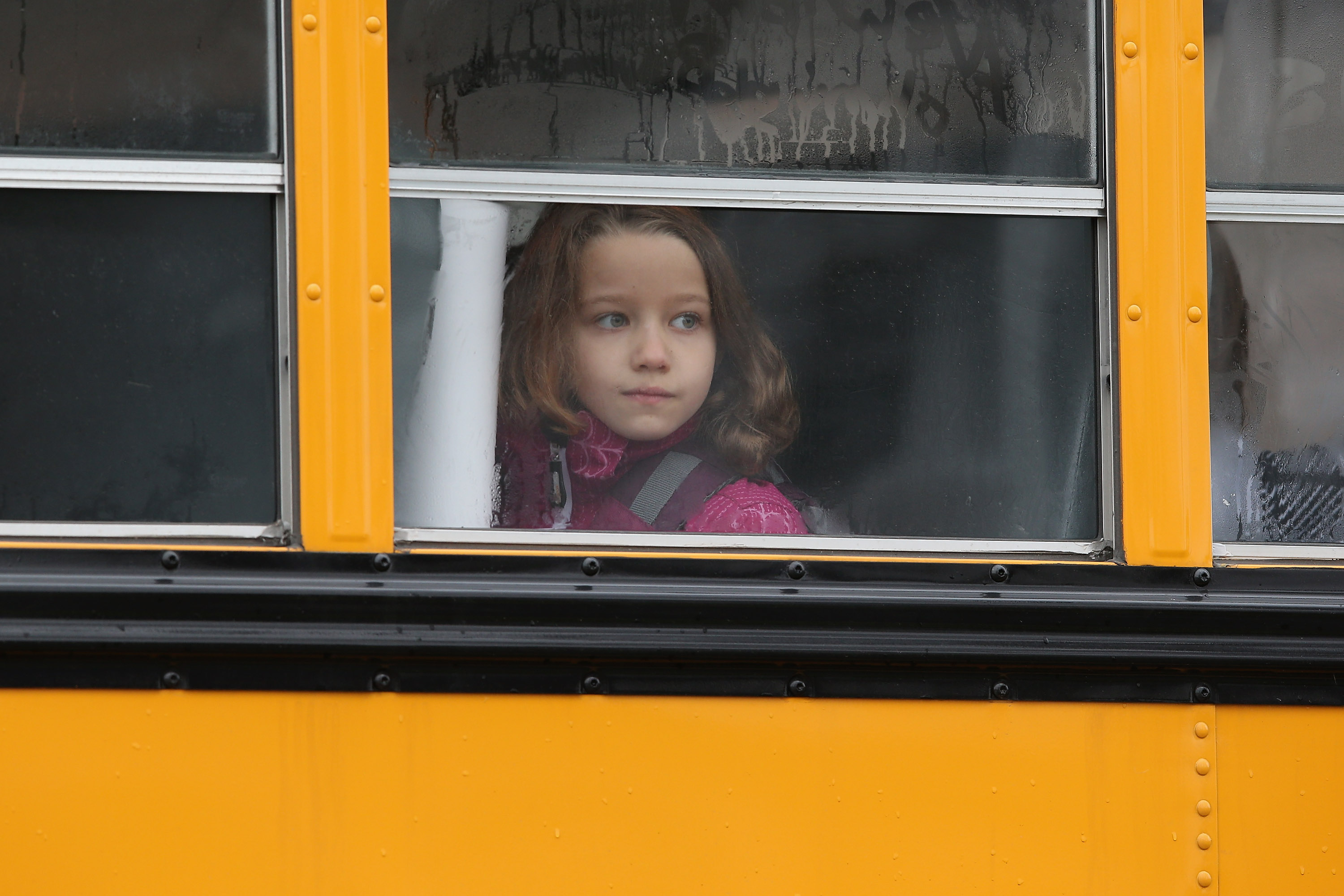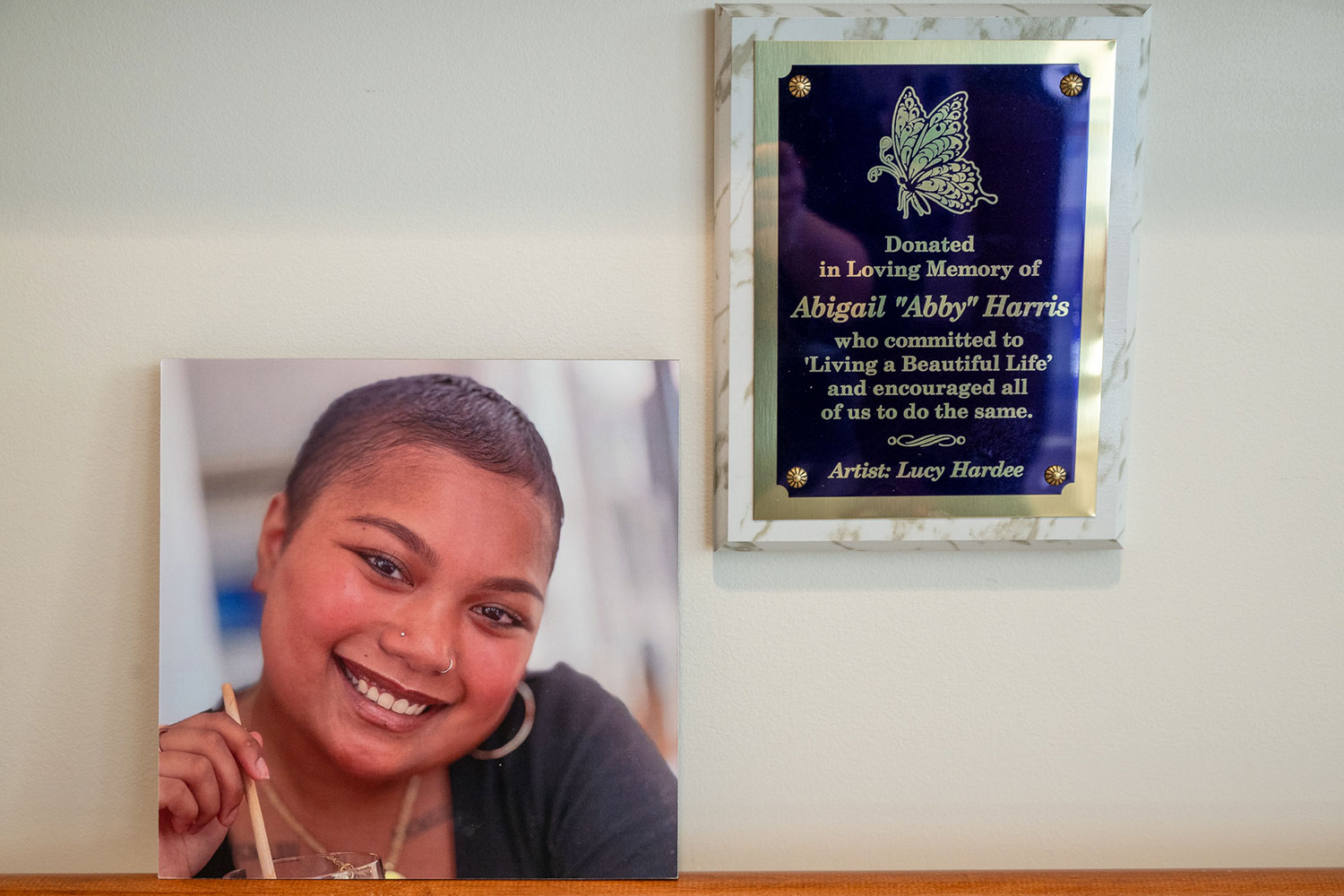Pandemic or no pandemic, when children are headed back to school it can be quite stressful for them and their parents.
“Anxieties abound when it comes to back to school,” says Dr. David FitzGerald, a child and adolescent psychologist at UConn Health. “COVID-19’s continued presence for this year’s back to school season will bring with it more challenges than ever before. We need to model calm for the kids at all times, and provide as much structure as possible, especially during these unpredictable times.”
FitzGerald adds: “Because of the virus, it’s hard to predict what the school year will ultimately bring which is part of the worry crux being experienced by a great deal of kids and parents alike. This year’s back to school stress is going to be highly exacerbated, whether your child is returning to the classroom in-person or virtually, given the uncertainty about the COVID-19 virus and how long children have been quarantined at home.”
According to FitzGerald, director of UConn Health’s Child and Adolescent Psychiatry Outpatient Clinic in West Hartford, the transition back to school even when there is not a pandemic to worry about can lead to a host of emotional and behavioral health challenges in kids. His team of psychologists and psychiatrists are preparing for an even bigger influx of children and teens ages 4 to 17 years old as they head back to school, and as parents grapple with a number of behavioral difficulties.
“During these extraordinary times parents need to be extra tuned-in to their children’s emotional health and well-being, and give them the tools they need to be best prepared for a smooth transition back to school,” says FitzGerald.
To reduce back to school and pandemic-associated anxiety, stress, and behavioral issues UConn Health’s child and adolescent psychiatry experts share this tool-kit of tips for kids and parents to keep in mind:
Keep calm: Back to school season preparations and the return to a regular, structured morning schedule comes with lots of extra hustle and bustle and even more added stressors during these unique pandemic times. It’s important for parents to lead by example by modeling a sense of calm themselves daily to keep stress levels for the children as low as possible. Also, slow down and give your family extra time in the morning so you don’t feel anxious and rushed. Teaching a child to take calming deep-breaths until their body is calm can help relieve stress. Remember a calm body, leads to calmer emotions and thoughts. Exercise, sports, and a child’s preferred play activities can also help relieve daily stress in addition to a good night’s sleep and a healthy daily routine. Also, stay as organized as possible for a stress-free morning including putting your family masks in an easily retrievable location.
Start a healthy routine now: Quarantine life on top of summertime may have led to a slide in a child’s healthy lifestyle and structured day, and too much television and other screen time. A healthy daily diet, exercise and proper sleep is critical for not only overall health for back to school but mental health and maintaining lower stress levels. For success, weeks before school starts children need to be guided to return to a healthy routine. If parents wait until school starts it can lead to added stress. “It takes several weeks for reverse engineering of kids for back to school to reach a family’s goals in advance,” stresses FitzGerald. Children’s mental health and well-being are best served by routine and a serene, structured schedule. And let your children know the schedule in advance.
Stay informed: Parents need to stay abreast of what is happening with the COVID-19 virus through trusted health organizations and news sources, as well as their specific school district and its website. Social media should not be the only news source relied upon. Also, there are online child health and mental health informational resources for parents. For example, the American Academy of Pediatrics hosts Healthy Children.org; The American Academy of Child & Adolescent Psychiatry has family resources; and the American Psychological Association has children resources.
Stay tuned-in to your child: Make sure to connect regularly with your child and be extra tuned-in to hear their thoughts, concerns and feelings and to answer their questions. Also, be sure to ask them if they have any questions. Be as honest as you can with your child and when you don’t have an answer to their question it’s okay to let them know that. It’s important to acknowledge their concerns and follow-up on their worries.
Keep kids updated: Parents should keep their kids informed. FitzGerald recommends keeping children abreast of what we know or know so far, what’s going to happen, and what we’re going to do so there are no surprises and frustrations are limited. And make sure to convey updates as you know them. Also, teach older kids about what information sources online are most reliable and best for them to search for information to stay up-to-date. For example, the CDC website. Also, younger children may benefit best from limited exposure to news and online information. It is ideal to have parents digest the information first prior to sharing it with them so a child can more fully understand it.
Stay flexible: Living through this pandemic has taught us that anything can change from day to day or week to week. Remain flexible and manage your child’s expectations so they can do the same. We can’t predict the future. “Remember no parent has done this before – returning kids to school during a pandemic. It’s an unexpected challenge. It will go a long way if parents and teachers remain flexible, help keep kids as calm as possible and pointed in the right direction as they head back to school,” says FitzGerald.
Communicate regularly with teacher: Good communication with your child’s teacher is more important than ever during these unusual and challenging times especially if you notice a mood change or other behavioral issues in your child. Also, parents are advised to not initially push a child too hard upon their return to school as it may add even more stress to their child’s plate right out of the starting gate. Children don’t need extra stress as they get caught up academically based around a parent’s perception or own personal worry about the child’s potential academic slide due to the pandemic’s quarantine. If you have concerns talk to the teacher proactively and take a wait and see approach by initially relying on the teacher’s perspective of the student’s performance as the child transitions back to school.
Acknowledge any warning signs: Some children may experience more significant stress levels than others during back to school whether they are virtually learning or in the classroom, or even struggling with COVID-19 related societal changes. If your child’s mood is different, there are other behavioral changes, or their sleeping and eating schedule is off make sure to check-in with them to acknowledge and discuss the issue so it can be addressed. If none of your parental interventions are working, seek support and call to get a consultation with a child and adolescent mental health professional either directly or through your pediatrician’s office. Also, the school nurse or counselor can help support you.
UConn Health’s Child and Adolescent Psychiatry Outpatient Clinic in West Hartford cares for children who have behavioral health difficulties as well as early-onset psychiatric disorders. The Clinic’s collaborative team of psychiatrists and psychologists provide support and resources to families in need. Services range from psychologists providing individual, family or group therapy, and testing services to psychiatrist evaluation, medication management and school consultation.
Some of the common child and adolescent mental health issues UConn Health’s psychiatry experts care for are anxiety, depression, oppositional defiant disorder (ODD), attention deficit/hyperactivity disorder (ADHD), Tourette Syndrome, obsessive-compulsive disorder (OCD), post-traumatic stress disorder (PTSD), early onset psychosis, and bipolar disorder.
Learn more about UConn Health’s Child and Adolescent Psychiatry Outpatient Clinic or call: 860-523-3745.



